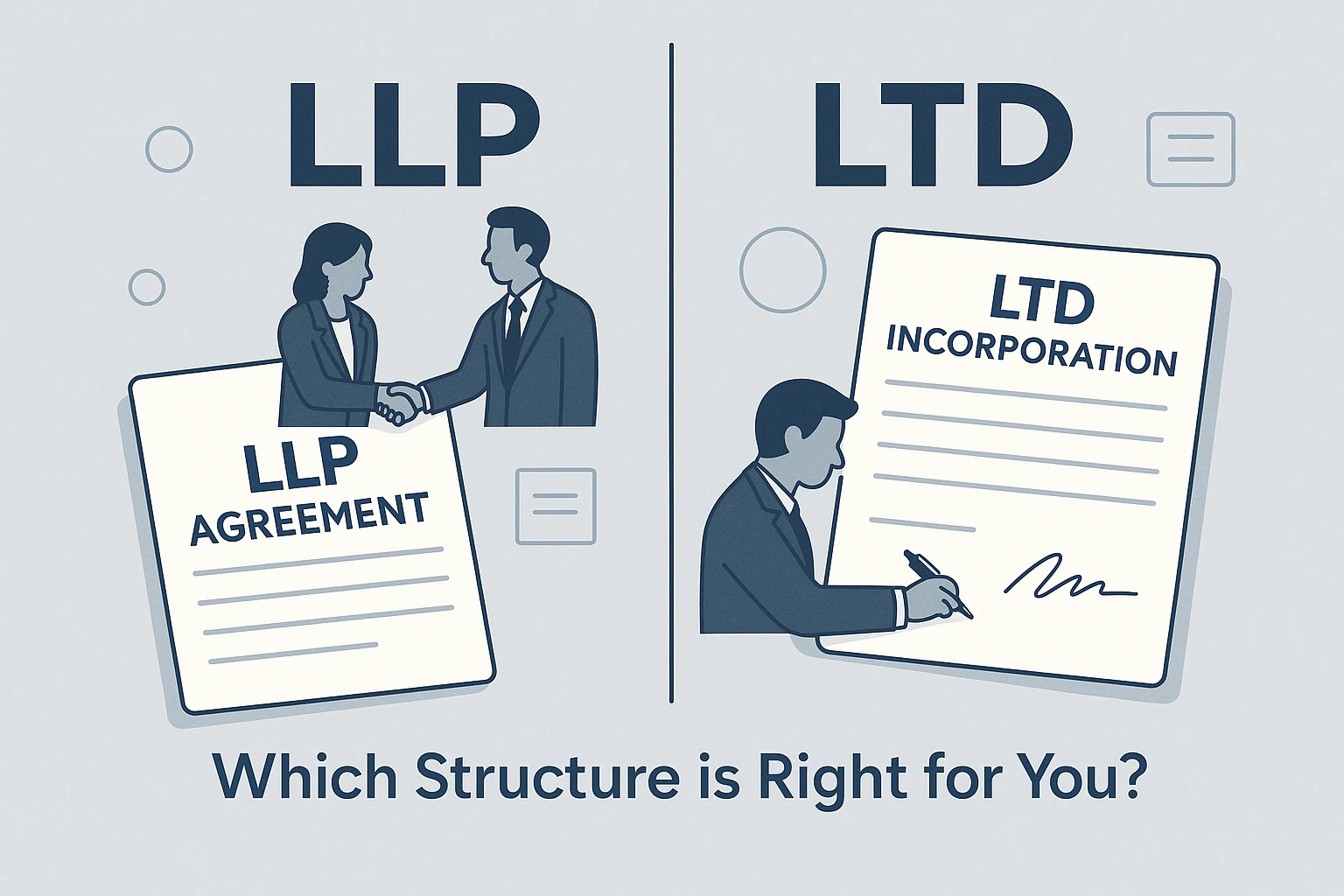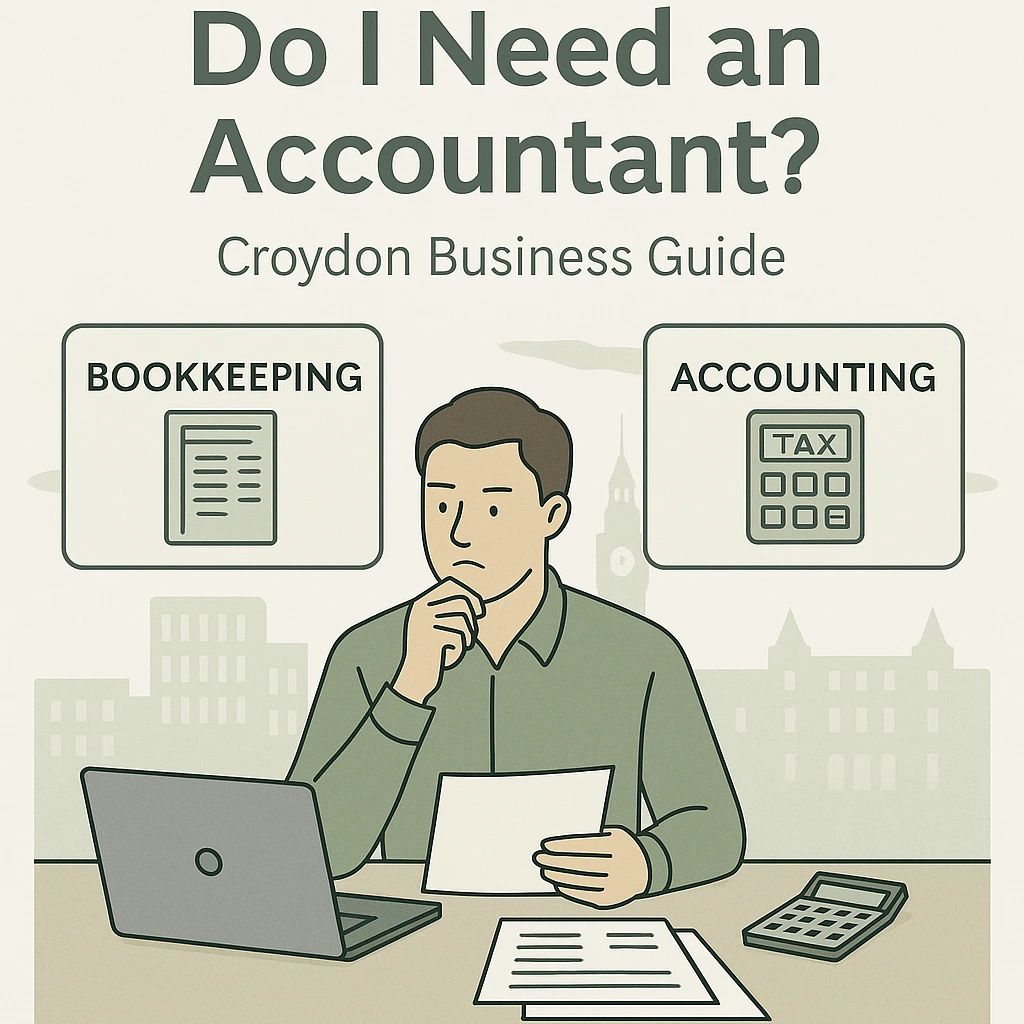
LLP vs LTD: Key Differences in UK Business Structures Explained
Compare LLP and LTD business structures in the UK. Learn the pros, cons, and legal differences to choose the best setup for your new business.
Comparing LLP and LTD Business Structures in the UK: A Guide for New Entrepreneurs
Are you interested in establishing your business in the UK but unsure about the registration process and which business structure to opt for?
LLP (Limited Liability Partnership) and LTD (Limited Company) are two common business structures that offer limited liability protection to their owners but differ in certain key aspects. Here, I’ll describe them in parallel to highlight their similarities and differences:
Legal Structure:
An LLP is a type of business structure that combines elements of a partnership and a corporation. It is a separate legal entity from its owners, known as partners. Partners in an LLP have limited liability, meaning they are not personally responsible for the debts and liabilities of the business. An LLP can have a minimum of two designated members, but there’s no specific maximum limit on the number of partners.
An LTD, often referred to as a limited company, is a separate legal entity from its owners, known as shareholders. Shareholders have limited liability, meaning they are not personally liable for the company’s debts and obligations.
The minimum requirement for shareholders in a private LTD is one, but there is no specific maximum limit on the number of shareholders. The flexibility to have multiple or single shareholders is a key feature of this business structure.
Ownership:
In an LLP, partners own and manage the business. The number of partners can vary, and they share profits and losses according to the partnership agreement.
In LTD shareholders own the company, and they may or may not be involved in the day-to-day management of the business. The number of shareholders can vary.
Registration and Compliance:
Registering an LLP involves submitting the necessary documentation to Companies House, including an incorporation document and annual financial statements. LLPs must also comply with regulations under the Limited Liability Partnerships Act 2000.
Registering an LTD involves incorporating the company with Companies House, issuing shares to shareholders, and appointing company directors. Additionally, LTDs must comply with regulations under the Companies Act 2006 and file annual financial statements.
Taxation:
LLP: In the United Kingdom, Limited Liability Partnerships (LLPs) have a specific tax treatment. LLPs are considered tax-transparent entities, meaning that they do not pay corporate income tax. Instead, the tax liabilities are passed through to the individual members (partners) of the LLP, who report their share of the LLP’s profits and losses on their personal tax returns in country of residency. In UK, they are subject to Income tax and National insurance contribution.
LTD: Limited companies are subject to corporate tax on their profits in the UK. Shareholders may be liable for personal income tax on dividends they receive.
Additional, both LLPs and LTDs may be required to pay VAT, Capital Gains Tax, and taxes on salaries, depending on their individual circumstances.
Please refer to Appendix 1 for specific tax treatment on profit.
Management and Decision-Making:
Partners in an LLP often actively participate in the management and decision-making of the business. Management roles and responsibilities are defined in the partnership agreement.
In contrast, Limited companies (LTD) are typically managed by directors, who may or may not be shareholders. Shareholders have a say in major decisions through voting at shareholder meetings.
Transferability of Ownership:
LLP: The transfer of partnership interests may be subject to restrictions outlined in the partnership agreement. New partners usually require the consent of existing partners.
LTD: Shares in a limited company can generally be transferred or sold to other individuals or entities, subject to any restrictions in the company’s articles of association.
Credibility and Perceptions:
LLPs are often chosen by professional service providers like law firms and accounting firms. They may be perceived as offering more transparency and flexibility in management.
Comparatively, Limited companies (LTD) are commonly used in various industries and may be seen as having a more established and corporate image.
In summary, both LLPs and LTDs provide limited liability protection to their owners, but they differ in terms of ownership, management, taxation, and regulatory requirements. The choice between these business structures depends on the specific needs and goals of the business and its owners. It is advisable to consult with legal and financial professionals before making a decision.
And so, Golden Tree Accounting and Business Consulting is here to assist you. Get in touch with us, and we will offer you a complimentary consultation.
Comparison Table
| Topic | Limited Liability Partnership (LLP) | Limited Company (LTD) |
|---|---|---|
| Institutions where to register | Companies House, HMRC | Companies House, HMRC |
| Returns to submit | 1. Annual account, once a year, to Companies House. \ |
- Self-assessment for each partner, once a year, to HMRC or in country of residence | 1. Annual accounts, once a year, to Companies House and HMRC. \
- CT600, once a year, to HMRC. |
| Corporation Tax | – | Corporation Tax (2023):
• Small profits rate (profits under £50,000) – 19%
• Main rate (profits over £250,000) – 25%
• Marginal Relief may apply if profits fall between £50,000 and £250,000. | | Income / Dividends Tax | Income tax:
• Up to £12,570 – 0%
• £12,571 to £50,270 – 20%
• £50,271 to £125,140 – 40%
• Over £125,140 – 45%
Dividends tax (if no other income):
• Up to £12,570 – 0% | Dividends tax:
• £1,000 allowance
• £12,571 to £50,270 – 8.75%
• £50,271 to £125,140 – 33.75%
• Over £125,140 – 39.35% | | NIC | National Insurance Contributions:
• Class 2 – £3.45/week
• Class 4 – 9% on profits £12,570–£50,270; 2% on profits over £50,270 | Same as LLP (applies to directors/employees if salaried) |
Appendix 1: Dealing with state institutions, returns and taxes.
*Note: Tax rates are in accordance with UK legislation for 2023-2024
About Elena Turcanu
Financial expert at Golden Tree Consulting
Helping businesses in Croydon navigate financial complexities with tailored solutions
More Articles You Might Like
Continue exploring our financial insights

Do I Need an Accountant for My Croydon Business?
Not sure if your Croydon business needs an accountant? Learn the difference between bookkeeping and accounting, and when it’s time to get professional help.

Why UK Startups Are Choosing Estonia for Company Formation
Explore why Estonia is ideal for UK startups. Learn how digital-first systems, zero corporate tax on retained profits, and fast company formation make Estonia a smart move for growth.

How to Choose the Right Local Accountant in Surrey, Kent & London
Looking for an accountant in Croydon, Reigate, or Surrey? Learn how to choose a local accountant who understands small business finances and helps you save time and money.
